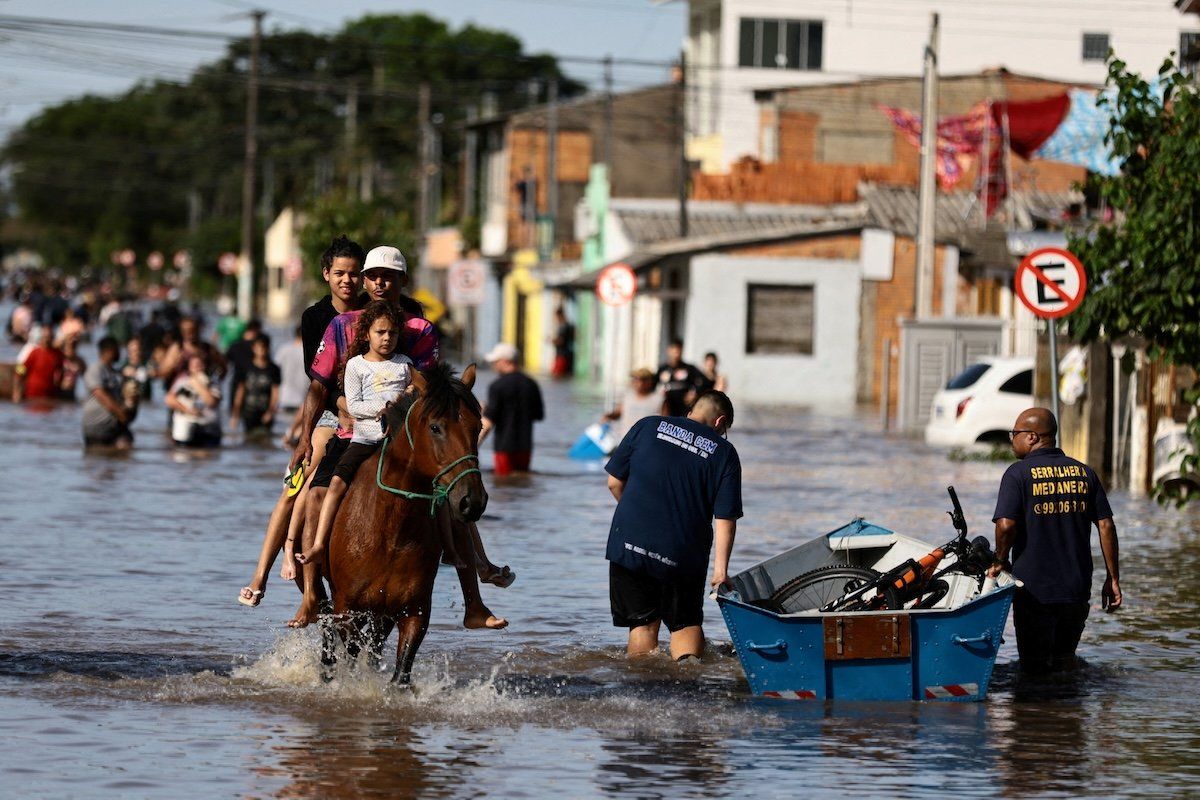Hard Numbers: Grim warnings on climate change, Rich get richer, Gender healthcare gap, AI dominates the conversation
Brazil will need to relocate citizens in areas that have been hit repeatedly by storms and other disasters supercharged by climate change, the country's Environment Minister Marina Silva said in Davos, Switzerland, earlier this month.
14.5 million: Davos offered grim warnings regarding climate change. A report released at the forum warned there could be an additional 14.5 million deaths from climate change by 2050 and $12.5 trillion in economic losses worldwide. To help mitigate these potential consequences, the global health system will necessitate a “comprehensive” transformation, the report said.
$869 billion: The combined fortunes of the world’s richest five men stand at $869 billion, according to a report released by Oxfam amid the World Economic Forum, up from $405 billion in 2020. The charity said the richest 1% now own 43% of global financial assets and called for curbs on CEO pay.
1 trillion: Women spend 25% more of their lives in poor health than men, according to a report released at Davos from the World Economic Forum and the McKinsey Health Institute. It found that closing the gender gap in healthcare could potentially add $1 trillion to the global economy by 2040.
30: Artificial intelligence was living rent-free in the minds of Davos attendees. There were 30 separate sessions touching on AI at this year’s forum. During one event on the topic, OpenAI CEO Sam Altman downplayed the notion that AI would dismantle society as we know it, saying, “It will change the world much less than we all think and it will change jobs much less than we all think.”
